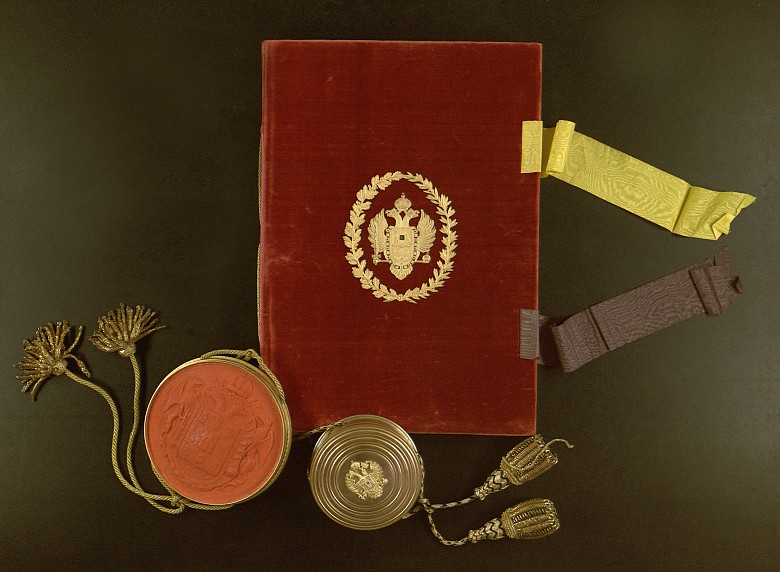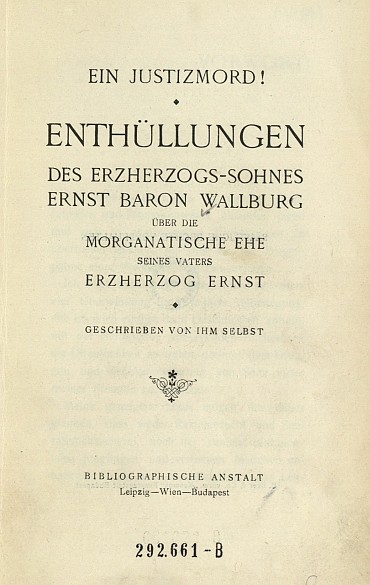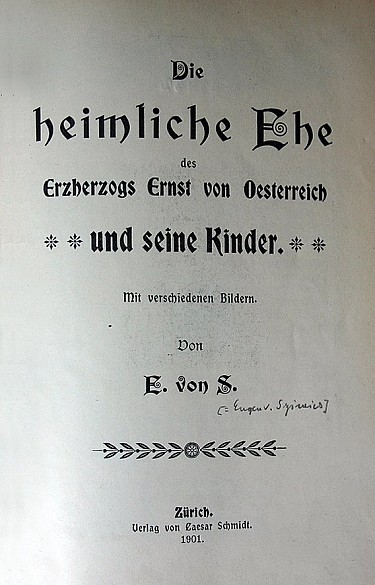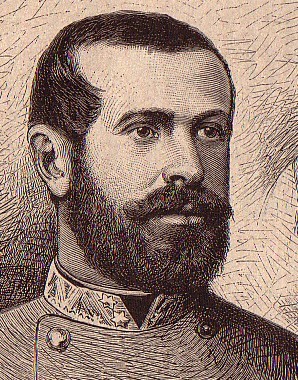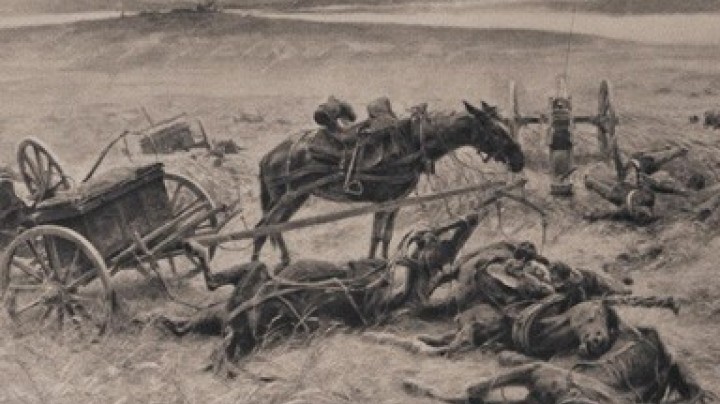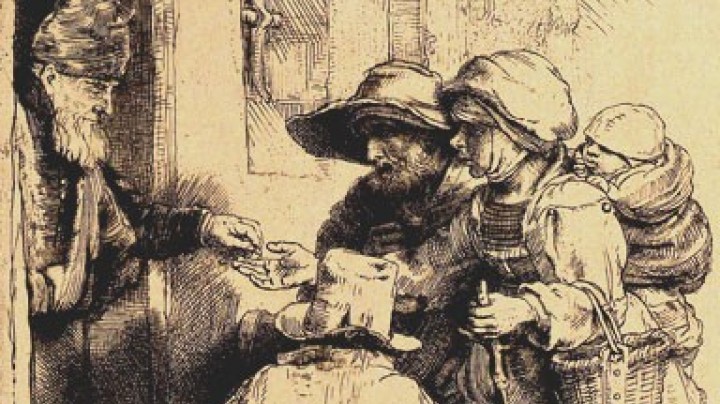Not creditworthy – Habsburgs ‘plagued’ by money worries
Your name is Habsburg and yet you are penniless? Even in the imperial family disobedient children could find their money supply cut off.
In the book entitled Die heimliche Ehe des Erzherzogs Ernst von Österreich und seine Kinder (The Secret Marriage of Archduke Ernst of Austria and his Children) they demanded1. That their births be recognized, 2. That their father’s inheritance to which they were entitled be disbursed. (...) Since they are legitimate children they have a justified claim to their father’s name. (...) Accordingly the children of Archduke Ernst of Austria have the right to call themselves ‘von Habsburg’(...) . 1. The cash assets left by Archduke Ernst on his death, 2. All assets in excess of his debts once these have been settled, 3. The money set aside for his appanage, 4. The gift made by Princess Montleart and paid into the fund for the benefit of Archduke Rainer, 5. The latter’s share of the inheritance of Archduke Leopold, 6. The interest accruing from items 1 to 5. (…) The resulting principal of 9,682,000 gulden undoubtedly justifies a minimum claim by the children of 12,689,000 gulden.
25,379,400 krone – that is the sum which the children of Archduke Ernst requested from the imperial house around 1900. By way of comparison: at the turn of the century an unskilled industrial worker earned around 16 krone per week. The archduke’s children demanded this seemingly unbelievable sum in an unusual way. They published two books in which they presented their demands and also probably vented their anger. In any case the two books sold well.
They saw themselves forced to take such measures because they were evidently short of money. Their father had made a morganatic marriage, that is to say one not appropriate to his station, and had thus forfeited all financial support from the family support fund for his children.
In this they were not alone, as Archdukes Franz Ferdinand and Johann could not expect any funds for their wives and children for the same reason. The situation was similar for Leopold Ferdinand, who had decided to live as a commoner and was thus excluded from financial support.
Those who could receive money from the fund were set out in the Family Statute of 1839. However, the fact that it was the head of the family who made the final decision is shown by the following example: when Archduke Otto died Franz Joseph granted the not inconsiderable sum of 100,000 krone to his mistress as a settlement for the children she had had by him. Franz Ferdinand’s children were also dependent on the Emperor’s support. Their father had accumulated a mountain of debts, which thanks to the Emperor’s support they did not have to settle themselves.
